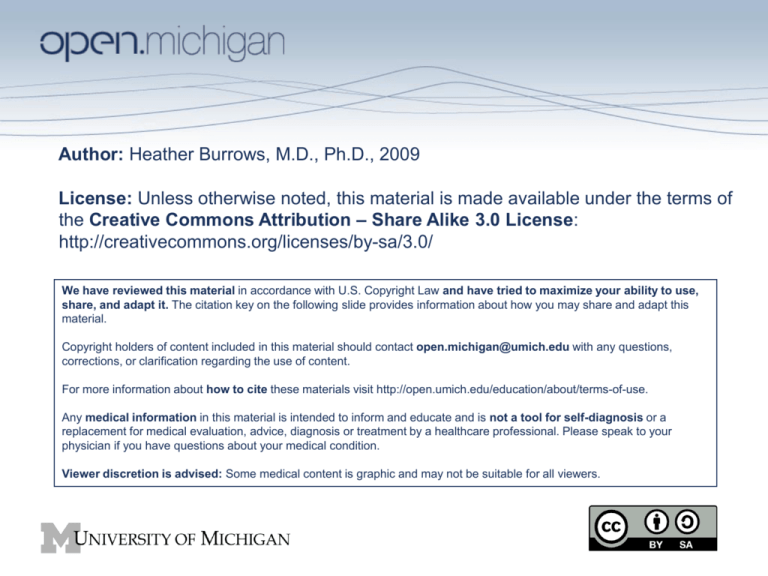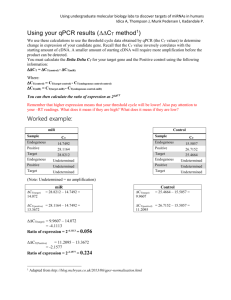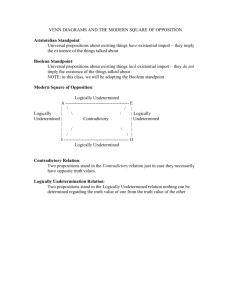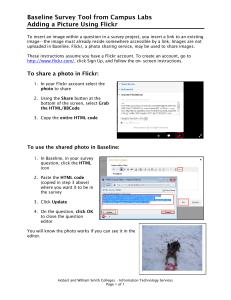Human Growth and Development Fetal and Neonatal
advertisement

Author: Heather Burrows, M.D., Ph.D., 2009
License: Unless otherwise noted, this material is made available under the terms of
the Creative Commons Attribution – Share Alike 3.0 License:
http://creativecommons.org/licenses/by-sa/3.0/
We have reviewed this material in accordance with U.S. Copyright Law and have tried to maximize your ability to use,
share, and adapt it. The citation key on the following slide provides information about how you may share and adapt this
material.
Copyright holders of content included in this material should contact open.michigan@umich.edu with any questions,
corrections, or clarification regarding the use of content.
For more information about how to cite these materials visit http://open.umich.edu/education/about/terms-of-use.
Any medical information in this material is intended to inform and educate and is not a tool for self-diagnosis or a
replacement for medical evaluation, advice, diagnosis or treatment by a healthcare professional. Please speak to your
physician if you have questions about your medical condition.
Viewer discretion is advised: Some medical content is graphic and may not be suitable for all viewers.
Citation Key
for more information see: http://open.umich.edu/wiki/CitationPolicy
Use + Share + Adapt
{ Content the copyright holder, author, or law permits you to use, share and adapt. }
Public Domain – Government: Works that are produced by the U.S. Government. (17 USC § 105)
Public Domain – Expired: Works that are no longer protected due to an expired copyright term.
Public Domain – Self Dedicated: Works that a copyright holder has dedicated to the public domain.
Creative Commons – Zero Waiver
Creative Commons – Attribution License
Creative Commons – Attribution Share Alike License
Creative Commons – Attribution Noncommercial License
Creative Commons – Attribution Noncommercial Share Alike License
GNU – Free Documentation License
Make Your Own Assessment
{ Content Open.Michigan believes can be used, shared, and adapted because it is ineligible for copyright. }
Public Domain – Ineligible: Works that are ineligible for copyright protection in the U.S. (17 USC § 102(b)) *laws in
your jurisdiction may differ
{ Content Open.Michigan has used under a Fair Use determination. }
Fair Use: Use of works that is determined to be Fair consistent with the U.S. Copyright Act. (17 USC § 107) *laws in
your jurisdiction may differ
Our determination DOES NOT mean that all uses of this 3rd-party content are Fair Uses and we DO NOT guarantee
that your use of the content is Fair.
To use this content you should do your own independent analysis to determine whether or not your use will be Fair.
Human Growth and Development
Fetal and Neonatal
Heather Burrows, MD PhD
Clinical Assistant Professor of Pediatrics
Spring 2009
Learning Objectives
Understand aspects of normal fetal growth and causes
of abnormal or insufficient growth during fetal
gestation.
Understand nutritional requirements during pregnancy
and effects of insufficient nutrition on the fetus and
mother.
Understand methods for measuring fetal and infantile
growth and development.
Understand normal infant growth and developmental
patterns and potential threats to each.
Understand aspects of infant nutrition and effects of
insufficient nutrition on the infant
Fetal Growth and Development
Patterns of Growth
Measures of Fetal Growth
Abnormal Fetal Growth
Patterns of Fetal Growth
Weeks 1-8
Weeks 8-20
Rapid growth and organogenesis
Weeks 20-34
Embryonic period
Differentiation and viability
Weeks 34-40
Fat deposition
Measures of Fetal Growth
Fundal Height
Distance from pubic symphysis to
top of fundus
Very accurate after 16 weeks
gestation
Source Undetermined
Source Undetermined
Measures of Fetal Growth
Crown-Rump
Length
(CRL)
Source Undetermined
Very accurate as
early as 6 weeks
gestation
CRL + 6.5 =
menstrual age in
weeks
Measures of Fetal Growth
Bi-Parietal
Diameter
Accurate after 12
weeks gestation
Very accurate
precursor of neonatal
head circumference
measurement
Callen. Ultrasonography in Obstetrics and Gynecology, 3rd Ed. WB Saunders Company, 1994.
Measures of Fetal Growth
Femur
Length
Source Undetermined
Accurate
after 14
weeks
gestation
Measures of Fetal Growth
Abdominal
Circumference
Callen. Ultrasonography in Obstetrics and Gynecology, 3rd Ed. WB Saunders Company, 1994.
Very sensitive
indicator of
asymmetric growth
retardation
Measures of Fetal Growth
Summary of
Normal
Fetal
Growth
Parameters
Source Undetermined
Newer Modalities
Chorionic Villus Sampling
Useful modality to
investigate suspected
chromosomal anomalies
Illustration of
transcervical
procedure
removed
Original image: http://www.nlm.nih.gov/medlineplus/ency/presentations/100194_3.htm
Image removed
Original image: http://www.nlm.nih.gov/medlineplus/ency/presentations/100194_5.htm
Newer Modalities
Fetal Echocardiography
Ministry of Health, the Elderly, and Community Care
Source Undetermined
Source Undetermined
Abnormal Fetal Growth
AGA-appropriate for gestational age
SGA-small for gestational age
IUGR-intrauterine growth retardation
LGA-large for gestational age
Small for Gestational Age
(SGA)
Definition
Birth weight at < 5th
percentile for gestational
age
Cause
unknown
PatersonFamilyFalkirk, flickr
Intrauterine Growth
Retardation (IUGR)
Definition
SGA with a known cause
Diagnosis
Abnormal Biophysical Profile
Clinical Obstetric Clues
Neonatal Examination
Source Undetermined
Large for Gestational Age
(LGA)
Definition
Birth weight at > 95th
percentile for gestational
age
Causes
Infant of a Diabetic Mother
Maternal Obesity
Cerebral Gigantism
Genetic Disorders
Source Undetermined
IUGR Classification
Symmetric
Asymmetric
Source Undetermined (Both Images)
IUGR Etiologies
IUGR
Symmetric (20%)
Asymmetric (80%)
Maternal
Factors
Uteteroplacental
Insufficiency
Genetic
Disorder
H. Burrows
Congenital
Infection
Decreased
Growth
Potential
Extreme Fetal
Malnutrition
Environmental
Toxins
Multiple
Gestation
Asymmetric IUGRMaternal Factors
Maternal Malnutrition
Caloric Requirements
Vitamin and Mineral
Requirements
Effects of Maternal Age
US Department of Agriculture/US Department of Health and Human Services
Prepregnancy weight and weight gain during pregnancy
account for 10% of the variance in birth weights
Asymmetric IUGRMaternal Factors
Maternal Illness
Hypoxemia
Hematologic/ immunologic
Substance abuse/cigarette smoking
Medications (anticonvulsants, antineoplastic
agents)
Asymmetric IUGR-
Uteroplacental Insufficiency
Abnormal vasculature
Chronic infection
Ideopathic inflammatory lesions
Placental mosaicism
Symmetric IUGRGenetic Disorders
Trisomy 13,18,21
Turner Syndrome
Achondroplasia
Russell-Silver
dwarfism
Seckel Syndrome
Cockayne Syndrome
Karyotype abnormalities account
for about 20% of IUGR
Source Undetermined
Symmetric IUGRCongenital Infections
Cytomegalovirus
Rubella
Toxoplasmosis
Herpes simplex
Syphilis
Parvovirus
HIV
Source Undetermined
Source Undetermined
Account for about 5% of IUGR births
Source Undetermined
Symmetric IUGREnvironmental Toxins
Maternal Medications
Illicit Drug Use
Alcohol
Cigarette Smoking
Source Undetermined
Infant Growth and
Development
Measures
Normal Patterns
Causes of Abnormal Growth and Development
Infant Growth and
Development-Measures
Neonatal
Growth Chart
Ballard Test
of Neonatal
Maturity
Source Undetermined
Infant Growth and
Development- Measures
Infant
Growth Chart
Source Undetermined
Infant Growth and
Development- Measures
Denver
Developmental
Screening Test II
Bayley
Gesell
Battelle
MIDI
Ages and Stages
Source Undetermined
Infant Growth and
Development
Birth Averages
Weight: 3.2 kg (7 pounds, 7 ounces)
normal range: 2.8-3.8 kg
Length: 50 cm (20 inches)
normal range: 46-54 cm
Head circumference: 35cm (13.8 inches)
normal range: 33 to 37 cm
Infant Growth and
Development
Weight
Initial weight gain is 15-30g/day
6 months: double birth weight
12 months: triple birth weight
2 years: quadruple birth weight
12 mo old ~ 10 kg;
5 yo ~ 20 kg; 10 yo ~ 30 kg
Head Circumference
Will be about 80% of adult size by age 2, 90% by age 7
Infant Growth and
Development
Length
4 years: double birth length
13 years: triple birth length
Boy
27 mo
6 yrs
9 yr
Girl
20 mo
5 yrs
7 yrs
% Adult Height
50%
66%
75%
adult height (adult height (girls) = 1.73 x height at age 3 years
boys) = 1.87 x height at age 3 years
Infant Growth and
Development
Normal Development
Development is stepwise and progresses
at a non-linear rate
Domains:
Gross motor
Fine motor/Adaptive
Personal/Social
Language
Infant Growth and
Development
Gross Motor Development
Primitive Reflexes- Asymmetric tonic neck reflex (ATNR), Grasp, Moro
Should be gone by 4-6 months of age
ThrasherDave, flickr
found_drama, flickr
Mileena, flickr
Infant Growth and
Development
Gross Motor Development
Key dates:
Neck control: 2 months
Sit without support: 7 months
Walk independently: 12-14 months
Source Undetermined (All Images)
Infant Growth and
Development
Fine Motor Development
Key dates:
Reaches and grasps objects: 4 months
Fine pincher grasp: 12 months
Stacks blocks, sorts shapes: 15 months
EHPhoto, flickr
Der Bettler, flickr
Source Undetermined
Infant Growth and
Development
Personal/Social
Key dates:
Social smile: 6 weeks
Looks for dropped object: 6 months
Waves bye-bye: 10 months
Interactive games: 12 months
Ben+Sam, flickr
Amos, flickr
Infant Growth and
Development
Language
Key dates:
Coos and fixes/follows: 2 months
Babbles in consonants and vowels: 6 months
Formed words: 12 months
5-10 words: 15 months
50 words: 2 years
Infant Growth and
Development
Abnormalities may be caused by:
Genetic Factors
Organic Disease
Environmental Exposures
Nutritional Deficiency
Psychosocial Dwarfism
Infant Nutrition
Caloric Requirements
Nutrient Sources for the Newborn
Vitamin and Mineral Requirements
Keys to Advancing the Infant’s Diet
Infant Nutrition
Benefits of Human Breastmilk
Passive immunity
sIgA, IgG, lactoferrin,
immunomodulators
decreased incidence of acute
gastroenteritis, otitis media,
meningitis, bacteremia, UTI.
Species-specificity
protein: lower content, higher
whey:casein ratio, amino acids
ideal (incl. taurine)
fat: long-chain polyunsaturated
carbohydrate: lactose
Infant Nutrition
Benefits of Human Breastmilk
Cost-estimated savings $400/yr,
decreased work absence due to illness
Bonding-high prolactin levels may effect
bonding
Long-term effects?-Possible effect on
incidence of atopy, SIDS, IDDM, Crohn’s
dz, cognitive development
12% of American babies are breastfed
through 6 months of age
Myllissa, flickr
Infant Nutrition
• Formulas differ in carbohydrate, protein, and fat sources
• Cow’s milk vs. Soy vs. Hydrolyzed Proteins vs. others
Source Undetermined
Infant Nutrition-milk protein
intolerance
Colitis/proctitis
Enterocolitis
Many infants cross react to soy protein
-appears in the first few months of life
-blood streaked stools in an otherwise healthy
appearing infant
-may have mild anemia, poor weight gain
-usually resolve by 1 year with protein avoidance
-appears in the first year of life
-bloody diarrhea and vomiting, infant may be “septic”
appearing
-90% resolve by 3 years
Infant Nutrition
Vitamin D
Normally synthesized through sunlight exposure
Important for calcium metabolism
Not in breast milk at substantial levels
Cases of rickets in breastfed babies have led to 2008
AAP recommendation for supplementation with 400IU
VitD/ day
Infant Nutrition
Fluoride
Fluoride strengths the tooth enamal and decreases the
risk of dental caries by 20-65%
Most municipal water sources are fluorinated
Some controversy does exist about supplementationexcess fluoride can cause fluorosis (discoloration of
teeth)
Infant Nutrition
Advancing the Infant Diet
Water
Starting Solids
Adding Finger Foods
6 months
Cereals before Fruits/Vegetables
before Meats
8-9 months
Detecting Food Allergy
Mightyb, flickr
Health Supervision of
Infants (well baby visits)
Growth Parameters
Developmental Assessment
Social and Family History
Physical Examination
Immunization
Disease Surveillance
Anticipatory Guidance
all in 20-25 min!!
THE END
See you in Pediatric clinic!
Additional Source Information
for more information see: http://open.umich.edu/wiki/CitationPolicy
Slide 7: Source Undetermined; Source Undetermined
Slide 8: Source Undetermined
Slide 9: Callen. Ultrasonography in Obstetrics and Gynecology, 3rd Ed. WB Saunders Company, 1994.
Slide 10: Source Undetermined
Slide 11: Callen. Ultrasonography in Obstetrics and Gynecology, 3rd Ed. WB Saunders Company, 1994.
Slide 12: Source Undetermined
Slide 13: Original image 1: http://www.nlm.nih.gov/medlineplus/ency/presentations/100194_3.htm; Original image 2:
http://www.nlm.nih.gov/medlineplus/ency/presentations/100194_5.htm
Slide 14: Ministry of Health, the Elderly, and Community Care,
http://www.sahha.gov.mt/showdoc.aspx?id=545&filesource=4&file=fig03.jpg; Sources Undetermined
Slide 16: PatersonFamilyFalkirk, Flickr, http://www.flickr.com/photos/neelypeel/501080991/, CC:BY-NC-SA
http://creativecommons.org/licenses/by-nc-sa/2.0/deed.en
Slide 17: Source Undetermined
Slide 18: CC BY NC ND, nathansnostalgia, flickr, http://creativecommons.org/licenses/by-nc-nd/2.0/deed.en
Slide 19: Source Undetermined (Both Images)
Slide 20: Heather Burrows
Slide 21: US Department of Agriculture/US Department of Health and Human Services
Slide 24: Source Undetermined
Slide 25: Source Undetermined, Source Undetermined
Slide 26: Source Undetermined
Slide 28: Source Undetermined
Slide 29: Source Undetermined
Slide 30: Source Undetermined
Slide 35: Mileena, Flickr, http://www.flickr.com/photos/mileena/2383853969/, CC:BY-NC-SA
http://creativecommons.org/licenses/by-nc-sa/2.0/deed.en; ThrasherDave, Flickr, http://www.flickr.com/photos/dmatos/2681778907/,
CC:BY-SA, http://creativecommons.org/licenses/by-sa/2.0/deed.en; found_drama, Flickr,
http://www.flickr.com/photos/found_drama/2644617756/, CC:BY-NC-SA, http://creativecommons.org/licenses/by-nc-sa/2.0/deed.en
Slide 36: Source Undetermined (All Images)
Slide 37: Der Bettler, Flickr, http://www.flickr.com/photos/derbettler/321868731/, CC:BY-NC-SA,
http://creativecommons.org/licenses/by-nc-sa/2.0/deed.en; EHPhoto, Flickr,
http://www.flickr.com/photos/elizabethhalford/4231429037/, CC:BY-SA, http://creativecommons.org/licenses/by-nc-sa/2.0/deed.en ;
Source Undetermined
Slide 38: Ben+Sam, Flickr, http://www.flickr.com/photos/wlscience/3721325113/, CC:BY-SA,
http://creativecommons.org/licenses/by-sa/2.0/deed.en; Amos, Flickr, http://www.flickr.com/photos/marcamos/2473817345/,
CC:BY-NC-SA, http://creativecommons.org/licenses/by-nc-sa/2.0/deed.en
Slide 43: myllissa, Flickr, http://www.flickr.com/photos/myllissa/2655516570/, CC:BY-SA
http://creativecommons.org/licenses/by-sa/2.0/deed.en
Slide 44: Source Undetermined
Slide 48: mightyb, Flickr, http://www.flickr.com/photos/mightyb/3338264465/, CC:BY-NC,
http://creativecommons.org/licenses/by-nc/2.0/deed.en





